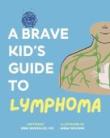Suggested Reading - Living with Lymphoma
Living with Lymphoma By Elizabeth M. Adler, Ph.D.
The John Hopkins University Press, 2nd Edition, 2016, 480 pages
ISBN: 9781421418100
A comprehensive resource for coping with medical, emotional and practical challenges. The author, who is a lymphoma survivor, thoroughly explains the disease, describing the many different kinds of Hodgkin and non-Hodgkin lymphomas, the wide range of symptoms and the various treatment options available.The new edition includes the latest information on lymphoma diagnosis, treatment, and incidence and describes the most recent update to the WHO system of lymphoma classification and staging. Adler discusses new targeted therapies like ibrutinib and idelalisib and describes how other treatments, including radiation therapy and stem cell transplants, have been modified while others have been discontinued.



